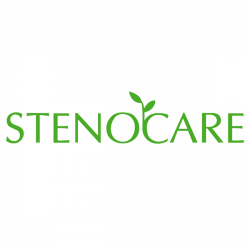Pharma Equity Group (“PEG” or “the Company”) announced on Friday, October 4th, that the Company’s board of directors has resolved to issue 204,592,776 new shares in a directed issue, with expected gross cash proceeds of approx. DKK 51.1m, including the conversion of convertible debt of approx. DKK 12.6m. As a result, the expected net cash proceeds are approx. DKK 38.5m before issue costs, given that the conversion of convertible debt does not involve an actual cash inflow. The subscription price is DKK 0.25 per share, which corresponds to a premium of approx. 19% in relation to the closing price of DKK 0.21 on October 3rd, and the new shares are subscribed by a limited group of new investors and existing shareholders. The dilutive effect following the issuance of new shares amounts to approx. 17% for existing shareholders. Through the capital increase, the Company achieves a strengthened and more robust capital structure, including an enhanced capital base.
Analyst Group’s View of the Capital Increase
“We view the directed issue as a highly positive sign, as it strengthens PEG’s balance sheet substantially, thereby creating financial flexibility and more room for pursuing the development of the Company’s drug candidates. What stands out in particular is that the issue is being conducted at a 19% premium compared to the closing price on October 3rd, which is uncommon in the current market climate and sends a strong signal, as it indicates robust confidence in PEG’s future by the investors participating in the directed issue.
With gross cash proceeds of approx. DKK 51.1m, of which approx. DKK 12.6m stems from the conversion of convertible debt, PEG not only reduces the debt substantially but also has net cash proceeds of approximately DKK 38.5 million before issue costs, resulting in an enhanced financial position and a stronger balance sheet. Considering PEG’s total debt at the end of Q2-24, which amounted to approx. DKK 43.5m, the Company could potentially, with the gross proceeds of approx. DKK 51.1m, diminish the debt and still have net proceeds of approx. DKK 7.6m, all else being equal. Analyst Group views it as likely that PEG will use part of the proceeds to further strengthen the balance sheet by paying the outstanding debt. However, we also deem it likely that a portion of the net proceeds will be used to support further clinical advancements of the Company’s drug candidates in Phase II, as well as to provide the financial capacity to explore potential licensing agreements.
To summarize, Analyst Group views the capital increase as a vital step in enabling PEG to continue the development of the promising studies of the Company’s drug candidates. Additionally, it enables PEG to accelerate the conversion of initial discussions with potential licensing partners into commercial licensing agreements, which could serve as a substantial value driver going forward. Moreover, we view the terms of the directed share issue as favorable, particularly the 19% premium of the subscription price, which sends strong signals from investors participating in the capital raise. This is especially notable in light of the fact that many other small-cap companies are being forced to offer issues at substantial discounts, often coupled with lower subscription commitments, which results in costly underwriting guarantees.”
Analyst Group’s View of Pharma Equity Group
Pharma Equity Group (“PEG” or “the Company”), through the Company’s subsidiary, Reponex, employs a drug repositioning strategy, which involves finding new uses for active substances used in previous recognized treatments, thus allowing the Company to circumvent phase I trials. PEG has a pipeline of six candidates in Phase II, targeting therapeutic areas such as Peritonitis, Chronic Wounds, IBD, and Colorectal Cancer, where there is currently no adequate treatment. The business strategy involves out-licensing the programs after Phase II to a pharma company capable of bringing the drugs to the market. PEG’s strategy enables a capital-light and highly scalable business model, offering a shorter route to market with equivalent upside potential, yet mitigating the typical risks associated with the pharmaceutical industry.
You can access our latest analysis of Pharma Equity Group here, and also watch a recent interview with the CEO, Thomas Kaas Selsø here.


